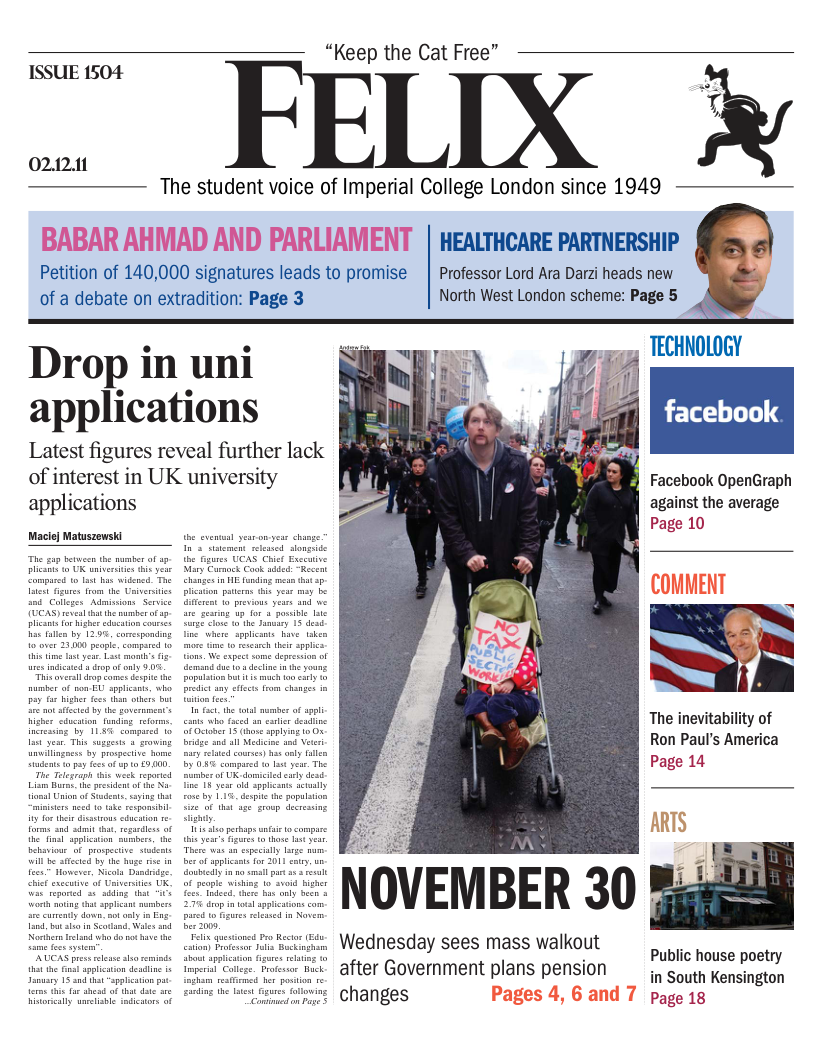This title has been delayed
Major delays on the Felix Line due to a signal failure in the Copy Editor area.

Reading that title, you can probably roughly guess what this article is going to be about. It’s the trains in Britain. I used to think the trains being often delayed, expensive and not running much on the weekend was an Essex thing, innit. It appears that I was wrong in that assumption, and Mock The Week panellists must be pleased that it’s widespread enough for everyone to appreciate their jokes. I’m just going to go straight for the jugular here: the trains in Britain need to be renationalised
I can’t pretend to know much about what the trains were like in the past. I also can’t really reliably ask anyone: if I ask my mum (who, if she’s reading, I’m eating loads of fruit and working so hard that I could technically take Imperial to some sort of criminal tribunal) she runs out of the room to grab her most rose-tinted of spectacles and tell me everything was perfect. So, what I know is what is here at the moment. Obviously, it wasn’t always perfect then, it’s not perfect now, and it will never be perfect. We should look to improve what we have now. Saying “yeah, well, if you look at it objectively it used to suck so why does it matter if it’s awful now” is a bit defeatist. We constantly should be trying to find a way to improve a service.
You may, at this moment, be shouting, “hey look you massive arsehole, we’re over two paragraphs in and you haven’t made an argument yet”. To this I would say that calling me an arsehole is a bit strong, what are you – a YouTube commenter? Never fear, the ‘well thought out’ argument is coming up now.
The train service is a public service ... it just makes no sense for it to be privatised
As mentioned above, I live in Essex. I used to get the train to and from school every day. They were average at best, very expensive, and they were not either large enough or frequent enough to have the room for everyone to sit. The trains are privatised and are run by a private company. The idea is that this causes competition and the companies have to improve their service to gain customers. Sounds fine in theory, but there is one massive gaping problem: only one company runs all of the trains on the line. This is where, like a cricketer who was thinking about Scarlett Johansson just as he’s about to make a catch, privatisation drops the ball. Even if I wanted to choose a different train company, as the current one wasn’t giving me what I wanted, I couldn’t. In fact, even if I drove (slightly defeating the point of a convenient train station) to another nearby station it would still be the same company.
When you fly from, say, Heathrow, you can choose what airline you use (e.g Virgin or BA). You can get to the same destination using either airline. They have to compete in terms of quality, price, or the best compromise of the two for your custom. This gives them an incentive to keep prices low and quality high. How can this be applied to a service where I only have one option? How does the idea of competition meaning better service apply when a company has a monopoly? I concede, perhaps, you could argue that they had to compete for a Government contract, but that’s not every year and once they have it they have the monopoly.
The operator on your line can basically hold you to ransom. They know that you need them and can therefore mess you about as much as they like. An opportunity they didn’t need a second invite to take. Ticket prices constantly soaring, less staff around, more delays, and don’t even try to get a train on Sunday or you will be banished to hell (replacement bus service – at the same price as a train, of course). Why shouldn’t they? They have no incentive to be anything better than the minimum required guidelines. They know any improvement will be wasted, as people have to use them anyway. What can I do? I can’t force them to improve by taking a different operator’s trains; I have to forgo trains entirely to protest. For many people (not to mention the congestion it would cause on the roads) this just isn’t a practical solution.
Another argument, often used for privatisation, is that it takes the burden of the cost of running the train service away from the tax payer and places it onto a company that will use ticket prices to recoup the money spent and make a profit. The trouble being that this hands the operator a no win no fee situation. If the train company goes bust they have to be bailed out, as the trains can’t just be allowed to stop running. They won’t try to go bust, but they don’t have to be that careful as they have a safety net. What I don’t understand is why the Government just lets a company reap all the rewards of privatisation and have no consequences. Why don’t they just do all the running of the trains in house?
The train service is a public service; it is there to provide you with a cheap, readily available means of transportation. It just makes no sense for it to be privatised. It should be in the public domain, so it can be run in the interest of the public. I’m not saying suddenly everything would be perfect, but it would be a start. I also understand that it can’t have a bottomless pit of money to use, but it would be there to run the best service with the available resources, not to make the most money from it.
Private companies are there to make money, but there are just some things where making money isn’t the overall objective and they therefore shouldn’t play a part. The NHS is another example where a service must be kept as a public service. If you disagree with that, then the other main point is that you don’t even get the benefits of competition.









